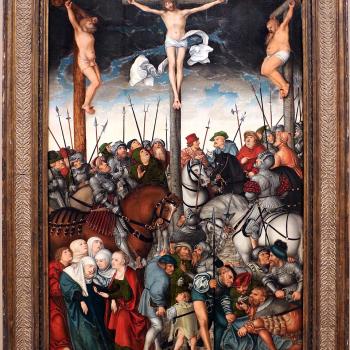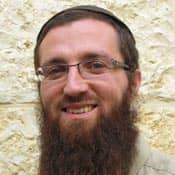According to Judaism our existence does not begin with our birth here in the physical realm, but much earlier. In fact, each of us, as souls, is actually a "piece" of the original, one, universal, all-inclusive soul called Adam.
It is only after Adam eats from the Tree of Knowledge of Good and Evil that his grand universal soul "fragments" into a multitude of "smaller" souls that subsequently become what we now refer to as the human race.
The intrinsic goal of these smaller souls is to rectify the negative effects of Adam's sin and "perfect" creation by making the correct choices toward God and soul-oriented living; thereby they grow in their relationship with the Infinite and bring about a higher level of God-clarity in the world—i.e., the task that was Adam's original goal and purpose.
The "Whole" Perspective Versus the "Part" Perspective
The difference between the all-inclusive universal soul (i.e., Adam) being "whole" versus the all-inclusive universal soul being "split up" is that in the "whole" state it is clear that all the parts (i.e., the individual souls) are aspects of the one all-inclusive whole, even though it is difficult to discern the uniqueness and characteristics of each specific part. Whereas, in the "split up" state, each "smaller" soul is enclothed within a separate body, thus allowing for the uniqueness and characteristics of each specific part to become recognizable and apparent; however, then it is difficult to grasp the reality that all parts are aspects of the one all-inclusive whole.
This is similar to the manner in which, if one were to "zoom in" on a flower, the intricacies of that flower's beauty would be revealed to him but he would lose sight of the totality of the flower. Whereas, if one were to "zoom out" and stick with a broader perspective of the flower, he'd see the totality of the flower but the intricacies of its beauty would never be revealed to him.
Spiritual Management
The purpose of "splitting up" the all-inclusive soul into numerous parts can be approached by comparing the spiritual damage caused by Adam's sin in the Garden with a heavy load that requires being moved from one location to another; obviously it would be easier for many people to carry what they can of the entire load than for a single person to try carrying the entire burden alone. So too, splitting up the universal soul into numerous parts makes it "easier" for humanity to rectify the damage caused by Adam's sin and to accomplish his original goal and purpose of elevating his relationship with the Infinite and magnifying God-clarity in the world.
Collective Responsibility
Let us be clear that it is not that we are suffering the effects of the sin in the Garden of Eden today because of what some other guy named Adam did thousands of years ago. Rather, each of us was and is a part of that all-inclusive universal soul called Adam (Eve as well—she was and is the feminine "side" of the original soul called Adam) and we each took part in that sin in the Garden of Eden. (According to Kabbalah, there is actually an exception to this. There were a small minority of souls who did not consent to the sin and managed to avoid taking an active part in it, but this is tangential.) Thus, each of us has our own unique piece of that sin to fix in order to rectify the spiritual damage we brought about by participating in it.
For this reason, the Hebrew word for 'reincarnation', gilgul, has the same numerical value as the sum total of the Hebrew words that mean 'was, is, and will be', hayah, hoveh, v'yiheeyeh, since the past, present, and future of humanity is really one grand story made up of the same soul(s).
Essence Versus Expression
It should be noted that when we refer to the universal soul of Adam being "split up," it is not that the universal soul itself was splintered; the universal soul remains one as it has been since its creation. Rather, it is the expression of the universal soul that was splintered and presently manifests itself in numerous bodies at different time periods.
This is comparable to electricity.
While electricity is "one," the expression of electricity can be numerous—heat, cooling, light, etc. Certainly, we would not say that there is a change in the electricity itself when we "view" it by way of an oven to when we "view" it by way of a refrigerator. Rather, we know that, at its core, the electricity is "simple" and it is "one." The electricity is a constant. It does not change. Instead, it is the vehicles by which the electricity is expressed and perceived that change.
This is the story of humanity.
The all-inclusive universal soul of Adam is still "one" at its core. It is a constant. It does not change. Rather, it is the vehicles (i.e., bodies) by which the universal soul is expressed and perceived as numerous souls that change.





